SUMMARY
This is AI generated summarization, which may have errors. For context, always refer to the full article.
![[OPINION] Still an ambition: How COP26 outcomes will impact the Philippines](https://www.rappler.com/tachyon/2021/11/20211031_143111.jpg)
The 2021 UN climate summit in Glasgow, United Kingdom (COP26) has concluded. The two-week negotiations, which were delayed from last year, took place as the climate crisis continued to wreak havoc around a world still dealing with the COVID-19 pandemic.
After starting with high hopes for more ambitious actions against the climate crisis, the negotiations ended in a familiar way: fancy words, not enough commitments.
Words over actions
COP26 featured many pledges related to energy transition to reduce emissions of carbon dioxide, the most common global warming pollutant.
For the first time, the COP decision text included a call against fossil fuels, specifically for nations to phase down “unabated coal” and phase out “inefficient subsidies of fossil fuels.” The original text called for ending all coal and inefficient subsidies, but the influence of China, India, and coal and oil producers effectively led to this watered-down decision.
Throughout the summit, different sets of countries declared collective pledges to enhance adaptation and mitigation efforts. These include commitments to phase out coal before 2050, end deforestation by 2030, and cut emissions of methane, the second most potent warming pollutant, by 30% within the decade.
These new commitments would lead to a global warming of 2.4 degrees Celsius above pre-industrial levels. This is way above the 1.5-degree target, which experts say if exceeded would cause more catastrophic climate disasters such as stronger typhoons.
A proposed Glasgow Loss and Damage Facility was pushed by vulnerable nations. This would serve as a mechanism for high-polluting nations including the United States and European countries to pay reparations for causing the climate crisis. This push, however, was blocked by developed countries. Discussions for financing loss and damage has been delayed instead for the next COP in Egypt.
That said, Scotland pledged GBP1 million to fund efforts against loss and damage, the first among the world’s governments. It is hoped that this would inspire more financial support for victims of climate disasters.
Other key developments for finance involve the announcement of the United States, Canada, Italy, and at least 20 other countries to stop overseas financing of fossil fuels by 2022, and the promise of $1.7 billion to support indigenous peoples’ forest conservation and land rights.
Within the COP decision is also urging developed nations to at least double the funding for adaptation by 2025, which is crucial for vulnerable countries like the Philippines to protect its communities while still pursuing sustainable development.
What it means for Philippines
As one of the nations most vulnerable to the impacts of the climate crisis, increased pledges to limit global warming is of vital importance to the Philippines. With heating projected to still increase despite updated global commitments, the country could expect more extreme climate impacts such as storms, droughts, and sea level rise to hit in the coming decades.
As such, the Philippine delegation to COP26 placed an emphasis on securing the means of implementation for its adaptation and mitigation programs. The country needs foreign support, especially in terms of finance, to combat the climate crisis, as expressed in its commitment under its Nationally Determined Contributions (NDC).
Insufficient funding from developed countries at COP26 would hinder the Philippines’s ability to hit its NDC target of reducing carbon emissions by 75% by 2030. While adaptation is strategically placed as the country’s anchor for its climate action, its pursuit of a less-pollutive development pathway is a moral imperative as a vulnerable nation that must be upheld.
The lack of finance for addressing loss and damage is especially a huge blow for the country’s fight for climate justice. The failure of developed nations to repay their climate debt would only harm high-prone communities, like what was seen with Super Typhoon Haiyan eight years ago or Rolly and Ulysses last year.
In anticipation of the slow progress of the climate negotiations, the Philippine government engaged in bilateral talks for months. At COP26, Finance Secretary Carlos Dominguez represented the nation in unveiling its partnership with the Asian Development Bank for an energy transition mechanism. This program aims to retire all coal plants within 10 to 15 years.
Dominguez also presented to ministers at COP26 the Sustainable Finance Roadmap, which would shape the national pathway to attaining the 75% emissions reduction target. This strategy addresses gaps in promoting sustainable investments through public finance and investments in green programs and developing sustainable financing projects within the nation.
However, there remains a lack of transparency in some of these projects. This issue has also been observed in different aspects of policymaking, such as the development of the Philippine NDC and the country’s positions at COP26. This contrasts with the “whole-of-nation” approach necessary for effective climate action and mandated under RA 9729 or the Climate Change Act of 2009.
Now what?
What is evident from COP26 (and quite frankly all the previous negotiations) is that the climate crisis does not care about the politics and the empty promises.
It is fair to recognize that some progress has been made. But given that we have been going in circles for nearly three decades, we have earned the right to be wary of these new promises. After all, it might be another case of too little, too late.
By this time next year, we could be reading the same old headlines, except that the number next to “COP” has changed. One way or another, we will cross the proverbial tipping point. The question is, will it be for the climate crisis or climate action?
How many COPs do we have to go through before we figure it out? – Rappler.com
John Leo is the Deputy Executive Director for Programs and Campaigns of Living Laudato Si’ Philippines and a member of the interim Secretariat of Aksyon Klima Pilipinas. He is a Philippine civil society delegate to the Glasgow climate summit (COP26).
Add a comment
How does this make you feel?
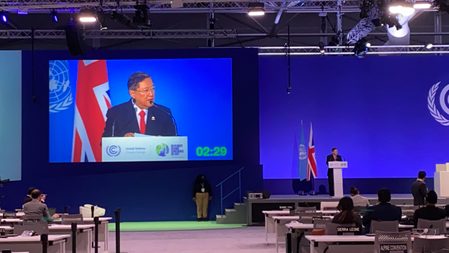
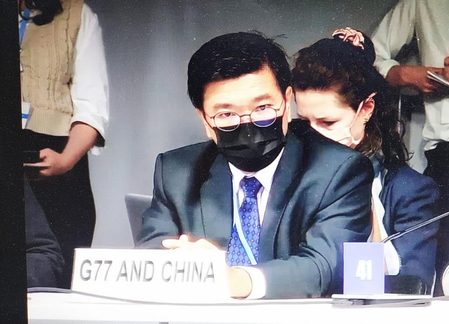
![[OPINION] Fossil fuel debts are illegitimate and must be canceled](https://www.rappler.com/tachyon/2024/04/IMHO-fossil-fuel-debt-cancelled-April-16-2024.jpg?resize=257%2C257&crop_strategy=attention)
![[WATCH] John Kerry: You can’t solve climate crisis without addressing ocean’s challenges](https://www.rappler.com/tachyon/2023/12/cop28-united-states-john-kerry-december-2-2023-reuters-001.jpg?resize=257%2C257&crop_strategy=attention)


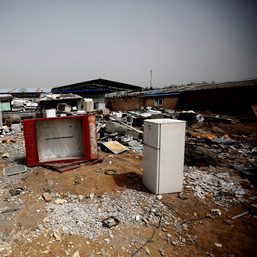
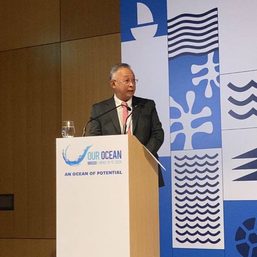
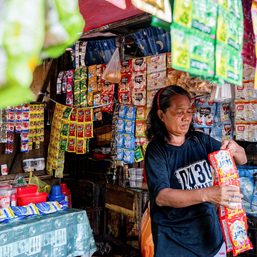


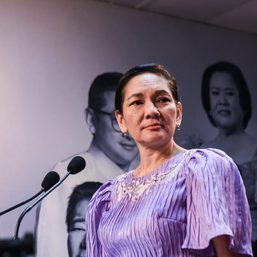
![[OPINION] What’s the right thing to do?](https://www.rappler.com/tachyon/2024/02/imho-whats-the-right-thing-to-do-02242024.jpg?resize=257%2C257&crop=259px%2C0px%2C720px%2C720px)
![[New School] Kagat ng realidad](https://www.rappler.com/tachyon/2024/02/new-school-kagat-ng-realidad-feb-14-2024.jpg?resize=257%2C257&crop=318px%2C0px%2C720px%2C720px)
![[New School] UP DiliMall, dili mall! Hindi nilalako ang edukasyon](https://www.rappler.com/tachyon/2023/11/ns-dilimall.jpg?resize=257%2C257&crop=307px%2C0px%2C720px%2C720px)
![[OPINION] A win for the breadwinner](https://www.rappler.com/tachyon/2023/08/iSpeak-win-breadwinner-August-1-2023.jpeg?resize=257%2C257&crop_strategy=attention)

There are no comments yet. Add your comment to start the conversation.